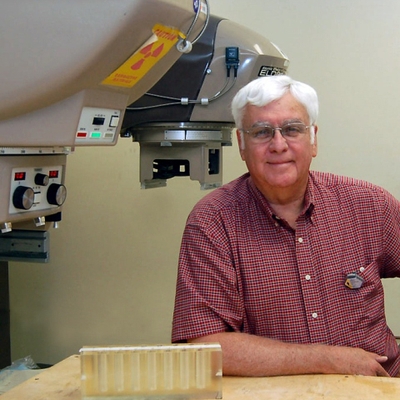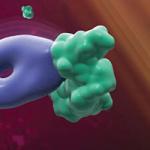
Research Topics
Modification of the Radiation Response
My research is directed toward the discovery of ways to modify the radiation response of both normal and tumor tissue. Such modification can be important for the improvement of cancer treatment using ionizing radiation either by protecting normal tissues or enhancing the sensitivity of tumor. Further, identifying means to protect normal tissues, particularly against radiation-induced late effects such as carcinogenesis, is important for countermeasure considerations of large populations exposed to radiation or in patients at risk for second malignancies following successful radiotherapy.
With respect to enhancing the effects of radiation damage to tumors, a number of approaches are being evaluated including molecularly targeted agents and cytotoxic chemotherapeutic agents. The overall objective here is to obtain a therapeutic gain by providing selective radiosensitization in tumors as compared to normal tissues. Admittedly, this has been and continues to be a difficult goal to achieve. We are presently evaluating in human tumor cell lines and xenografts treated with inhibitors such as KRAS mutation inhibitors, vasculogenesis inhibitors, and OxpPhos inhibitors. Studies include the effects of the agent combined with radiation on cell survival, DNA damage repair, and cell cycle perturbations coupled with the effects of the combination on specific signal transduction pathways.
Our laboratory was first to identify nitroxides (lead compound Tempol) as catalytic antioxidants and radiation protectors providing protection against oxidative- and radiation-induced damage. Extensive pre-clinical studies are directed to normal tissue radioprotection using systemically or topically applied Tempol to protect against oral mucositis and salivary gland damage resulting from cisplatin-based chemoradiation in mice without interfering with tumor response. Studies are also directed to better define the mechanism of Tempol-mediated reduction in weight gain in mice. Preliminary findings indicate that chronic supplementation of Tempol in the diet of mice over their life span can reduce body weight without toxicity, decrease cancer, and extend survival when administered immediately after non-lethal total body radiation (TBI). Delaying administration of the Tempol diet 1 month after TBI also enhanced survival and decreased carcinogenesis, suggesting that there may be a considerable "progression" phase of TBI-induced cancer induction that is amenable to modification and/or intervention. We are also studying the effects of Tempol on mice gut microflora.
Biography
Dr. Mitchell received his Ph.D. from Colorado State University in cellular radiation biology in 1978. He came to the NIH and the Radiation Oncology Branch of the NCI in 1979 and became an independent investigator in 1984. He served as chief of the Radiobiology Section and later as deputy branch chief of the Radiation Oncology Branch. In 1993, he was named chief of the Radiation Biology Branch. In 2010, he received the Failla Award from the Radiation Research Society and in 2015 he received the Gold Medal Award from the American Society of Therapeutic Radiation Oncology.
Selected Publications
- Cook JA, Chandramouli GV, Anver MR, Sowers AL, Thetford A, Krausz KW, Gonzalez FJ, Mitchell JB, Patterson AD. Mass Spectrometry-Based Metabolomics Identifies Longitudinal Urinary Metabolite Profiles Predictive of Radiation-Induced Cancer. Cancer Res. 2016;76(6):1569-77.
- Leiker AJ, DeGraff W, Choudhuri R, Sowers AL, Thetford A, Cook JA, Van Waes C, Mitchell JB. Radiation Enhancement of Head and Neck Squamous Cell Carcinoma by the Dual PI3K/mTOR Inhibitor PF-05212384. Clin Cancer Res. 2015;21(12):2792-801.
- Li F, Jiang C, Krausz KW, Li Y, Albert I, Hao H, Fabre KM, Mitchell JB, Patterson AD, Gonzalez FJ. Microbiome remodelling leads to inhibition of intestinal farnesoid X receptor signalling and decreased obesity. Nat Commun. 2013;4:2384.
- Mitchell JB, Anver MR, Sowers AL, Rosenberg PS, Figueroa M, Thetford A, Krishna MC, Albert PS, Cook JA. The antioxidant tempol reduces carcinogenesis and enhances survival in mice when administered after nonlethal total body radiation. Cancer Res. 2012;72(18):4846-55.
- Mitchell JB, Choudhuri R, Fabre K, Sowers AL, Citrin D, Zabludoff SD, Cook JA. In vitro and in vivo radiation sensitization of human tumor cells by a novel checkpoint kinase inhibitor, AZD7762. Clin Cancer Res. 2010;16(7):2076-84.
Related Scientific Focus Areas



Molecular Biology and Biochemistry
View additional Principal Investigators in Molecular Biology and Biochemistry

This page was last updated on Thursday, May 18, 2023